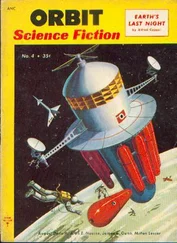Arnie said, “No, I heard they found a buyer that was willing to put up more than they paid; they made a profit, after all these yars. So it paid them to hold out. I wonder who’s nuts enough to want that land. I got some mineral rights there, you know. I want you to check into who bought that land and what kind of operation they represent. I want to know what they’re doing over there.”
“Good to know those things.” Again everyone nodded, and one man--Fred, it looked like--detached himself from his shower and padded off to dress. “I’ll check into that, Arnie,” Fred said over his shoulder. “I’ll get to it right away.”
Addressing himself to the remaining men, Arnie soaped himself all over and said, “You know I got to protect my mineral rights; I can’t have some smoozer coming in here from Earth and making those mountains into like for instance a national park for picnickers. I tell you what I heard. I know that a bunch of Communist officials from Russia and Hungary, big boys, was over here around a week ago, no doubt looking around. You think because that collective of theirs failed last year they gave up? No. They got the brains of bugs, and like bugs they always come back. Those Reds are aching to establish a successful collective on Mars; it’s practically a wet dream of theirs back Home. I wouldn’t be surprised if we find out that those Portugees from California sold to Communists, and pretty soon we’re seeing the name changed from the F.D.R. Mountains, which is right and proper, to something like the Joe Stalin Mountains.”
The men all laughed appreciatively.
“Now, I got a lot of business ahead of me today to conduct,” Arnie Kott said, washing the soapsuds from him with furious streams of hot water. “So I can’t devote myself to this matter any further; I’m relying on you to dig into it. For example, I have been traveling east where we got that melon experiment in progress, and it seems like we’re about to be entirely successful in inducing the New England type of melon into growing here in this environment. I know you all have been wondering about that, because everybody likes a good slice of cantaloupe in the morning for his breakfast, if it’s at all possible.”
“That’s true, Arnie,” the boys agreed.
“But,” Arnie said, “I got more on my mind than melons. We had one of those UN boys visiting us the other day protesting our regulations concerning the niggers. Or maybe I shouldn’t say that; maybe I should talk like the UN boys and say ‘indigenous population remnants,’ or just Bleekmen. What he had reference to was our licensing the mines owned by our settlement to use Bleekmen at below scale, I mean, below the minimum wage--because even those fairies at the UN don’t seriously propose we pay scale to Bleekmen figgers. However, we have this problem that .we can’t pay any minimum wage to the Bleekmen niggers because their work is so inconsistent that we’d go broke, and we have to use them in mining operations because they’re the only ones who can breathe down there, and we can’t get oxygen equipment in quantity transported over here at any price less than outrageous. Somebody’s making a lot of money back Home on those oxygen tanks and compressors and all that. It’s a racket, and we’re not going to get gouged, I can tell you.”
Everybody nodded somberly.
“Now, we can’t allow the UN bureaucrats to dictate to us how we’ll run our settlement,” Arnie said. “We set up operations here before the UN was anything here but a flag planted in the sand; we had houses built before they had a pot to piss in anywhere on Mars, including all that disputed area in the south between the U.S. and France.”
“Right, Arnie,” the boys all agreed.
“However,” Arnie said, “there’s the problem that those UN fruits control the waterways, and we got to have water; we need them for conveyance into and out of the settlement and for source of power and to drink and like now, like we’re here bathing. I mean, those buggers can cut off our water any time; they’ve got us by the short hairs.”
He finished his shower and padded across the warm, wet tiles to get a towel from the atttendant. Thinking about the UN made his stomach rumble, and his onetime duodenal ulcer began to burn way down in his left side, almost at the groin. Better get some breakfast, he realized.
When he had been dressed by the attendant, in his gray flannel trousers and T-shirt, soft leather boots, and nautical cap, he left the steam bath and crossed the corridor of the Union Hall to his dining room, where Helio, his Bleekman cook, had his breakfast waiting. Shortly, he sat before a stack of hotcakes and bacon, coffee and a glass of orange juice, and the previous week’s New York Times , the Sunday edition.
“Good morning, Mr. Kott.” In answer to his buttonpressing, a secretary from the pooi had appeared, a girl he had never seen before. Not too good-looking, he decided after a brief glance; he returned to reading the newspaper. And calling him Mr. Kott, too. He sipped his orange juice and read about a ship that had perished in space with all three hundred aboard killed. It was a Japanese merchantman carrying bicycles. That made him laugh. Bicycles in space, and all gone, now; too bad, because on a planet with little mass like Mars, where there was virtually no power source-- except the sluggish canal system--and where even kerosene cost a fortune, bicycles were of great economic value. A man could pedal free of cost for hundreds of miles, right over the sand, too. The only people who used kerosene-powered turbine conveyances were vital functionaries, such as the repair and maintenance men, and of course important officials such as himself. There were public transports, of course, such as the tractor-buses which connected one settlement with the next and the outlying residential areas with the world at large . . . but they ran irregularly, being dependent on shipments from Earth for their fuel. And personally speaking the buses gave him a case of claustrophobia, they moved so slow.
Reading the New York Times made him feel for a little while as if he were back Home again, in South Pasadena; his family had subscribed to the West Coast edition of the Times, and as a boy he remembered bringing it in from the mailbox, in from the street lined with apricot trees, the warm, smoggy little street of neat one-story houses and parked cars and lawns tended from one weekend to the next without fail. It was the lawn, with all its equipment and medicines, that he missed most--the wheelbarrow of fertilizer, the new grass seed, the snippers, the poultry-netting fence in the early spring. . . and always the sprinklers at work throughout the long summer, whenever the law allowed. Water shortage there, too. Once his Uncle Paul had been arrested for washing his car on a water-ration day.
Reading further in the paper he came upon an article about a reception at the White House for a Mrs. Lizner who, as an official of the Birth Control Agency, had performed eight thousand therapeutic abortions and had thereby set an example for American womanhood. Kind of like a nurse, Arnie Kott decided. Noble occupation for females. He turned the page.
There, in big type, was a quarter-page ad which he himself had helped compose, a glowing come-on to get people to emigrate. Arnie sat back in his chair, folded the paper, felt deep pride as he studied the ad; it looked good, he decided. It would surely attract people, if they had any guts at all and a sincere desire for adventure, as the ad said.
The ad listed all the skills in demand on Mars, and it was a long list, excluding only canary raiser and proctologist, if that. It pointed out how hard it was now for a person with only a master’s degree to get a job on Earth, and how on Mars there were good-paying jobs for people with only B.A.’s.
Читать дальше









